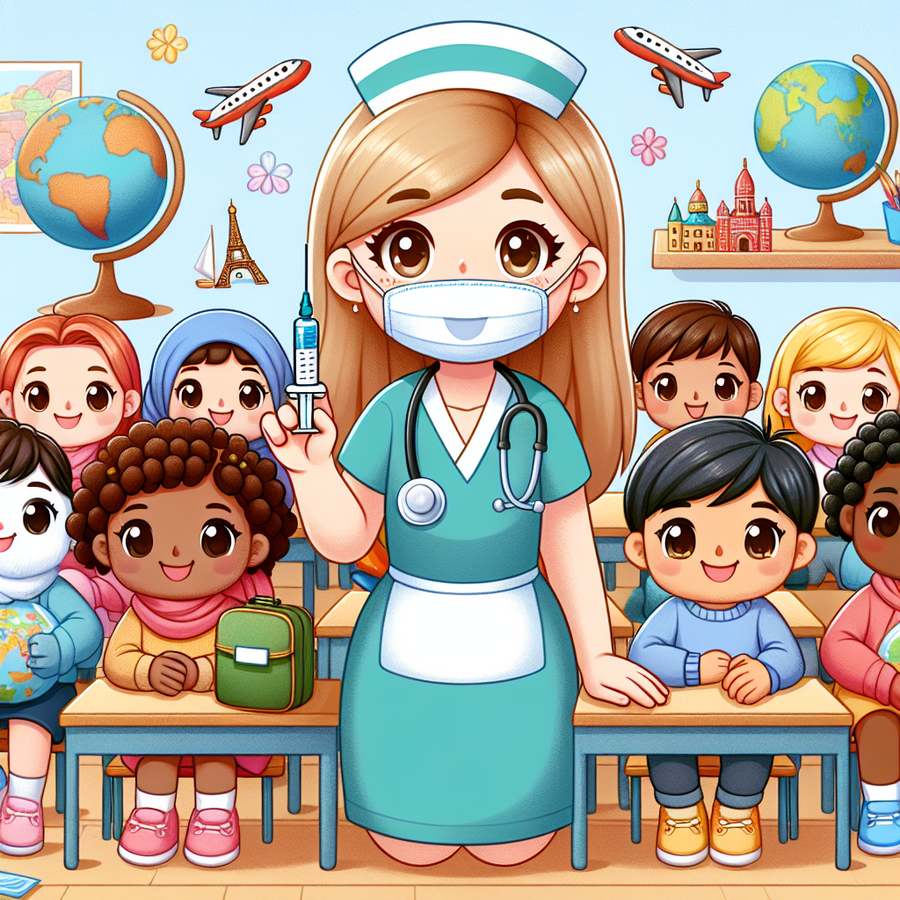Yellow Fever Vaccination is a critical travel-related consideration for families planning to visit certain countries. This guide is dedicated to new parents who wish to understand the ins and outs of this vaccination to ensure their family’s health and safety during international travels.
What is Yellow Fever Vaccination?
Yellow fever is a viral disease transmitted by infected mosquitoes, prevalent in parts of Africa and South America. The Yellow Fever Vaccination is an effective measure to prevent this disease, recommended or required for travelers to countries where yellow fever is found. It’s not only a health protection measure but also a travel requirement for entry into many countries to prevent the disease’s spread.
The vaccine is generally safe for children aged 9 months and older, providing immunity within 10 days for 95% of people vaccinated. However, discussing potential risks and precautions with a healthcare provider is vital, especially for infants and pregnant or breastfeeding mothers.
When to Consider Yellow Fever Vaccination for Your Family
Planning international travel requires careful consideration of various health precautions, including vaccinations. The World Health Organization recommends the Yellow Fever Vaccination for people traveling to or living in areas where yellow fever is a known risk. Typically, countries with yellow fever transmission will demand proof of vaccination from travelers.
It’s advisable to get vaccinated at least 10 days before your travel to ensure immunity and comply with international health regulations. Remember, the vaccination is valid for life, although some countries may require a booster dose every 10 years.
Yellow Fever Vaccination: Travel-Related Consideration
Yellow Fever Vaccination is not just about protecting your family from the disease; it’s about fulfilling travel requirements. Some countries may deny entry without valid proof of vaccination, known as the International Certificate of Vaccination or Prophylaxis. Thus, it’s crucial to include this in your travel preparations.
Besides the vaccination itself, consider visiting a travel health clinic or consulting your family doctor well in advance of your trip. They can provide the most current advice on yellow fever and other health risks based on your destination.
Preparing Your Child for Vaccination
Preparing your child for Yellow Fever Vaccination involves both physical and emotional preparation. Ensure your child is well-rested and has eaten before the appointment. Bring their favorite toy or book to comfort them during the visit.
After the vaccination, monitor your child for any side effects, which are generally mild and may include soreness at the injection site, fever, or fatigue. Severe reactions are rare but require immediate medical attention.
For more information on preparing your child for vaccinations, you may find our resources on immunizations helpful. Understanding the febrile seizures and managing soreness and swelling can also be beneficial.
FAQs on Yellow Fever Vaccination
Parents often have numerous questions regarding Yellow Fever Vaccination. Here are answers to some frequently asked questions:
- Is the Yellow Fever Vaccination safe for my child?
- How long does immunity last after getting vaccinated?
- Can pregnant or breastfeeding mothers get the vaccination?
- What are the side effects of the Yellow Fever Vaccination?
For detailed answers to these questions and more, please refer to trusted health sources or consult with your healthcare provider.
In conclusion, Yellow Fever Vaccination is a crucial travel-related consideration for families planning to visit endemic areas. Understanding its importance, when it’s needed, and how to prepare can ensure your travels are both enjoyable and safe. Remember, the best travel plans are those made with your family’s health and safety in mind.
For additional resources on baby health and travel considerations, visit our website at Yellow Fever Vaccination (Travel-Related Consideration) and explore related topics such as malaria prevention and traveling with babies.













